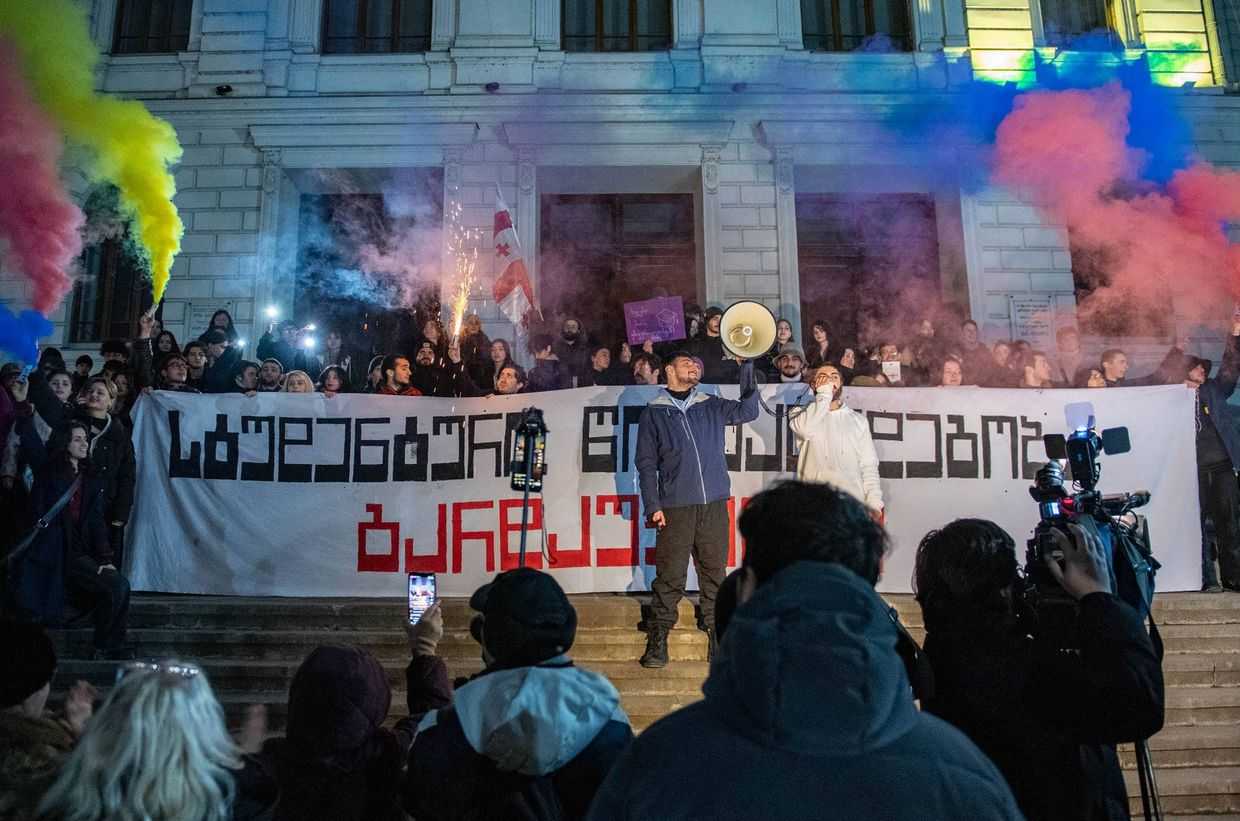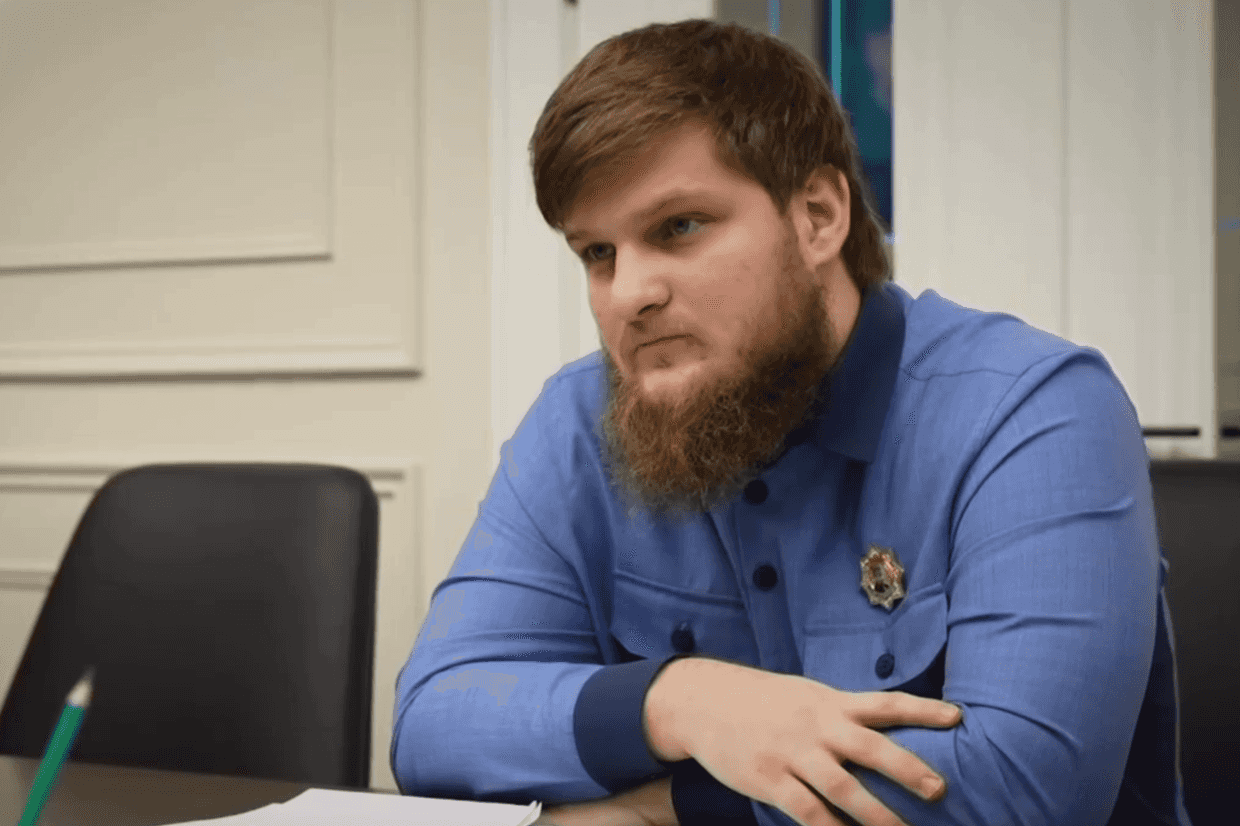

Elderly teachers have been offered a generous retirement package as part of new reforms announced by Georgia’s Education Ministry. But some critics fear a ‘purge’ of older teachers.
Out with the old and in with the new.
In an effort to modernise Georgia’s education system, the Ministry of Education has embarked upon a controversial new scheme to phase out elderly and under-qualified ‘practising’ teachers throughout the country’s education system.
In May, the education ministry announced that, as part of a new programme, it is offering state school teachers who have reached retirement age and do not wish to take a skills competency test, the ‘privilege’ of retiring and receiving a one-time ‘reward’ — a lump sum valued at two-years worth of salary.
This is only the latest attempt to update the Georgian education system in recent years, which despite having a relatively low student to teacher ratio (9:1) is ranked as one of the lowest performing in the region.
A tiered system
In 2015, the Georgian government introduced a system of professional rankings for teachers, dividing the profession into four categories: Senior, Lead, Mentor, and Practising.
‘Senior’ status means a teacher has demonstrated professional competence in the subjects they teach; a ‘leading’ teacher is also engaged in developing teaching programmes and teaching resources; while a ‘mentor’ consults and supervises early-career teachers. ‘Practising’ teachers are in the lowest category, and are considered to have not certified their professional competence.
Deputy Education Minister Irina Abuladze says that of the 64,000 teachers in Georgia, 33,000 are classified as ‘practicing’ teachers. According to the National Centre for Teachers’ Professional Development, Georgia currently has 12,521 practising teachers over the age of retirement (60 for women and 65 for men) eligible to apply for the scheme.
Since 2015, practicing teachers were expected to accumulate credits with their professional activities and pass a certification exam within three years in order to advance to ‘senior’ status. They would have to retake the exam every four years thereafter to maintain the status. Initially, the reforms also included the possibility of lay-offs among practicing teachers — a harsh incentive to move up in status.
However, several months before the October 2016 parliamentary elections, the government removed the deadline that threatened thousands of ‘practicing’ teachers with possible lay-offs by 2019, calling it ‘obscene’. The government assured those who would not advance their status that while they would not see a future salary raise, their contracts would not be in danger of termination either.
A carrot instead of a stick
With these latest reforms, Georgian Education Minister, Mikheil Batiashvili, said that he is trying to ensure that Georgia’s schools are staffed by ‘highly qualified, motivated, strong teachers, who are equipped with modern knowledge and have a dignified salaries’.
A major pillar of these efforts is incentivising the transition from ‘practicing’ to ‘senior’ teacher not by punishing practicing teachers, but by rewarding those of higher status. To that end, a ₾150 ($55) pay raise is slated to come into force in September for Senior Teachers, Lead Teachers, and Mentors. Practicing teachers can apply to take a competency test in order to upgrade their status.
Meanwhile, practising teachers above retirement age, who have been offered the two-year lump sum retirement package, have also been given the further incentive of retaining the same health care insurance that they had as working teachers.
Those who chose not to take the retirement package were encouraged to undergo a competency test this summer and upgrade their status. And while the initial deadline to apply for the new retirement scheme was May 2019, those teachers who fail the test, will still be eligible to apply for the retirement scheme until 2020.
The Education Ministry has also said that those who fail the tests in the summer will be given the opportunity to retake them in November, with a retraining programme in the interim period.
An education ministry spokesperson told OC Media that while ‘nothing is excluded’, at the moment they are not promising a similar retirement scheme after 2019.
How voluntary is ‘voluntary’?
Davit Peradze, the head of the Teachers’ Coordination Center (TCC), a teachers’ advocacy group, told OC Media that ‘moving to a system of testing’ teachers was ‘not a bad idea’.
It is fair for the state to expect a teacher wanting to advance in his or her career to take an exam for minimal competency in a taught subject, he says, ‘but it is unclear what a minimal competency would mean’.
Peradze told OC Media that the TCC initially welcomed Batiashvili’s plans, but, ‘it turned out later that the state gave an ultimatum to teachers’.
‘It is supposedly voluntary, but how?’ he said. ‘Either you sit an exam or go home’.
According to Peradze, those refusing to retire or upgrade their professional status will have no realistic chances to continue teaching at a school — he added that there were also reports that some did so or decided to pass the exam ‘due to psychological or other sorts of pressure’.
The Ministry of Education said they investigated ‘several reports’ of school teachers being pressured to leave but could not confirm them.
‘[The tests] could be a smokescreen for a purge’, Peradze said, adding that they are planning to set up a strike committee with a representative from each school, to counter possible state pressure on teachers.
Practicing teachers who cannot or choose not to retire and who fail or refuse to take the competency test will still be eligible to work at the same salary they currently have. However, it will be on fixed-term contracts and they can be fired at-will by their school administration.
Additionally, on 2 August, the Education Ministry instructed schools that while continuing to employ practicing teachers on a fixed-term contract in 2020, they should still announce openings for newcomers who, if hired, would replace the practicing teachers. Under the reform, all incoming teachers must pass the competency test and will enter the education system with the rank of senior teacher.
Teachers react
The Education Ministry told OC Media in June that there were ‘almost 6,000 schoolteachers’ nationwide who applied for redundancy through their school administrations.
According to Sopo Gorgodze, Director of the National Assessment and Examinations Centre (NAEC), about 800 ‘practicing’ teachers who are over the age of retirement changed their minds after registering for the tests and opted for redundancy.
Ia Nutsubidze, a 70-year-old art history teacher for year 7 pupils at Tbilisi’s 51st Public School, welcomed the news of the reform.
‘It is time to go. It makes sense […] I was going to retire anyway. I think I’ve reached my limit. It is time to give way to young people’, she told OC Media.
She added that her school gave her detailed information about the option to exit the education system but that they never pressured her to leave.
‘Quite the contrary’ she told OC Media. ‘They suggested I should proceed with the tests’.
Marina Babunashvili, a 62-year-old teacher of year three and four students at Gori’s Second Public School told OC Media that 13 or 14 teachers, all teaching primary classes, have already ‘eagerly’ submitted their retirement requests.
She said there were 80 and 82-year-old practising teachers among them.
Babunashvili said even those with higher status and qualifications at her school wished the scheme were available for them too. Though Babunashvili, who has been a teacher for 35 years, was not among them, saying that she was ‘looking forward’ to getting her Senior Teacher status soon.
Maia Rurua, a 50-year-old teacher of Russian as a foreign language at Tbilisi’s 37th Public School, told OC Media that she is left cold by some aspects of the reforms.
Rurua passed two competency tests, one in 2011 and 2014, but fails to understand why those who have confirmed their competency should be ‘constantly tested again or be stripped of their statuses’.
The National Assessment and Examinations Center (NAEC) informed OC Media that more than 20,000 out of 31,000 teachers who registered for qualifications exams for this summer were practising teachers. Sopo Gorgodze, the head of the NAEC, recently said that 10,000 were new applicants seeking to become teachers.








